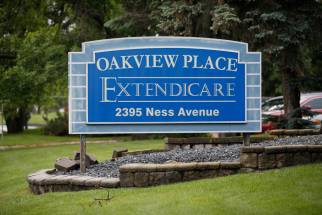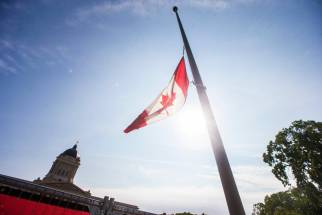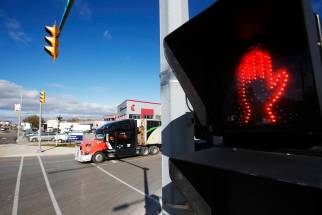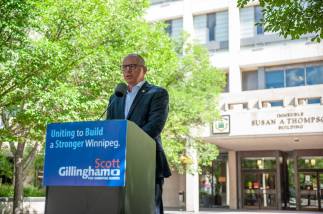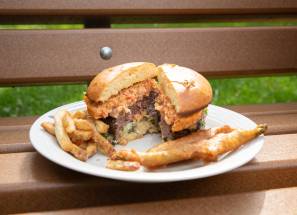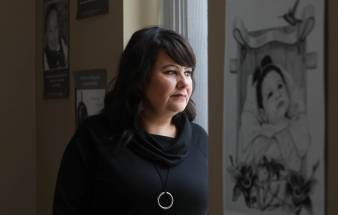Mayoral candidates vexed by taxing issue
Read this article for free:
or
Already have an account? Log in here »
To continue reading, please subscribe:
Monthly Digital Subscription
$0 for the first 4 weeks*
- Enjoy unlimited reading on winnipegfreepress.com
- Read the E-Edition, our digital replica newspaper
- Access News Break, our award-winning app
- Play interactive puzzles
*No charge for 4 weeks then price increases to the regular rate of $19.00 plus GST every four weeks. Offer available to new and qualified returning subscribers only. Cancel any time.
Monthly Digital Subscription
$4.75/week*
- Enjoy unlimited reading on winnipegfreepress.com
- Read the E-Edition, our digital replica newspaper
- Access News Break, our award-winning app
- Play interactive puzzles
*Billed as $19 plus GST every four weeks. Cancel any time.
To continue reading, please subscribe:
Add Free Press access to your Brandon Sun subscription for only an additional
$1 for the first 4 weeks*
*Your next subscription payment will increase by $1.00 and you will be charged $16.99 plus GST for four weeks. After four weeks, your payment will increase to $23.99 plus GST every four weeks.
Read unlimited articles for free today:
or
Already have an account? Log in here »
Hey there, time traveller!
This article was published 13/09/2022 (1182 days ago), so information in it may no longer be current.
Mayoral candidate Scott Gillingham proposes to bring in a new dedicated “infrastructure tax” to help pay for capital projects. It’s a risky move that may not go over well with some taxpayers, many of whom are struggling with price inflation and soaring interest rates. But it does raise a legitimate question: can the city, which has taken on record debt in recent years and is still feeling the financial pain from the COVID-19 pandemic, avoid raising property taxes beyond its existing 2.33 per cent annual increase? It could become one of the top issues in this campaign.
“I think, generally speaking, we need more revenue to proceed into the future,” Gillingham told the Free Press this week. “There are services we need to invest in and there are capital projects to build our economy that we need to invest in. That’s going to require more revenue.”
After 14 years of property tax freezes and cuts, the city, under mayor Sam Katz, brought in a property tax increase of 3.87 per cent in 2013. One percentage point of that was dedicated to a newly created local street renewal fund. The following year, property taxes jumped 2.95 per cent: one percentage point was for local streets, another went to a new regional street fund, and 0.95 per cent was for general revenue.
ETHAN CAIRNS / WINNIPEG FREE PRESS FILES “I think, generally speaking, we need more revenue to proceed into the future,” Mayoral candidate Scott Gillingham told the Free Press this week.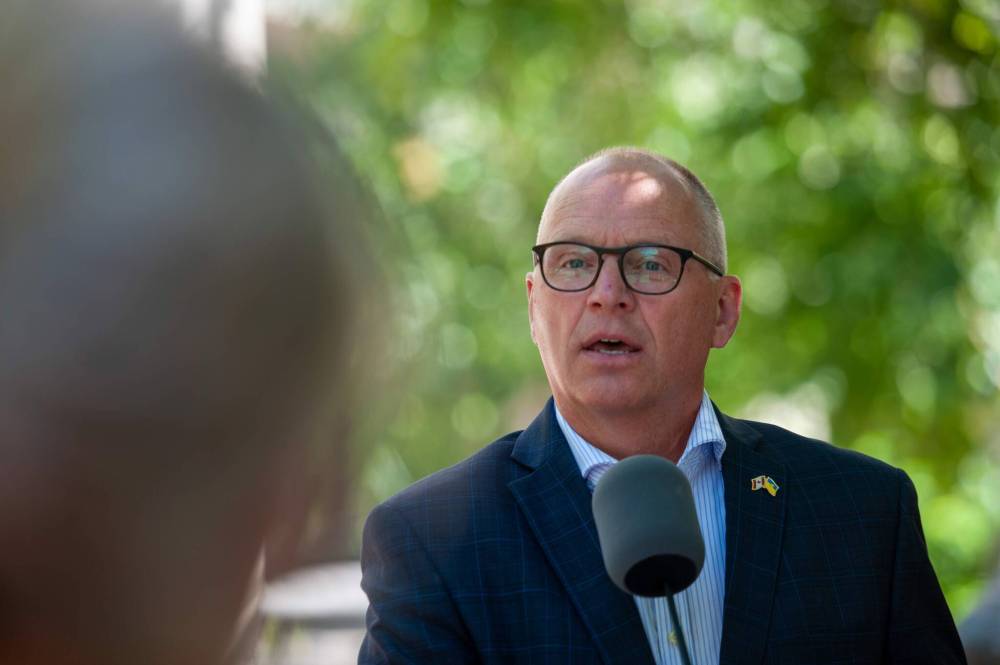
In 2015, Mayor Brian Bowman’s first budget, property taxes rose 2.3 per cent. They’ve gone up 2.33 per cent every year since then — two percentage points for street repair and 0.33 per cent for bus rapid transit infrastructure (the two per cent increase this year was used to help offset COVID-19-related costs).
City council, under Bowman and Gillingham, also jacked up the amount the city siphons from the water and waste utility for general revenue. It forced the utility to raise rates higher than it otherwise would to make up for the lost revenue. It’s a practice the province’s Public Utilities Board has called a “hidden property tax increase.” Meanwhile, frontage levies on property have been frozen at $5.45 per foot since 2016, but more than doubled between 2010 and 2016.
With costs continuing to grow well beyond two per cent a year in many areas of city operations (and city hall’s “rainy day” fund expected to be near-empty by the end of the year), the question is: where does the city find the hundreds of millions required for expensive infrastructure projects?
Mayoral candidates are promising myriad new spending initiatives — including electric buses, safe injection sites, and more road repair — or measures that would reduce revenue (such as proposed tax breaks for home renovations or cancelling photo radar), yet most have still not shared details of how they would pay for them.
Gillingham says he wants to be up front about where he plans to get the money.
“The city, I believe, is in a position to need a revenue increase, a tax increase, to support the confirmed work and the ongoing investments we need to make, to grow our economy and grow our city,” said Gillingham, who promises more detail on his proposed infrastructure tax in the coming weeks.
“The city, I believe, is in a position to need a revenue increase, a tax increase, to support the confirmed work and the ongoing investments we need to make, to grow our economy and grow our city.”–Scott Gillingham
But how will taxpayers react, many of whom are struggling with the high cost of gas and an inflation rate that hit 8.8 per cent in July? Mortgage rates are rising and some homeowners will pay higher interest charges on their lines of credit. With few people expecting much in the way of wage hikes in the short term (at least none that come close to making up for inflation) it may be the worst time imaginable to propose a tax hike.
“I do realize that right now inflationary pressures are on people, but they’re also on the City of Winnipeg,” said Gillingham. “We face inflationary pressures and constant increases on our capital projects. We face inflationary pressures and costs increases on our labour — on everything the city does.”
How high Gillingham proposes to go on taxes remains to be seen. Each one-percentage point increase on property taxes generates just over $6 million for the city and costs the average homeowner about $21 a year. Homeowners have been paying about $40 more a year in property taxes from the 2.33 per cent increase. Gillingham proposes an amount higher than that.
To tax or not to tax? It’s a question all candidates in the Oct. 26 civic election will have to answer eventually.
tom.brodbeck@freepress.mb.ca
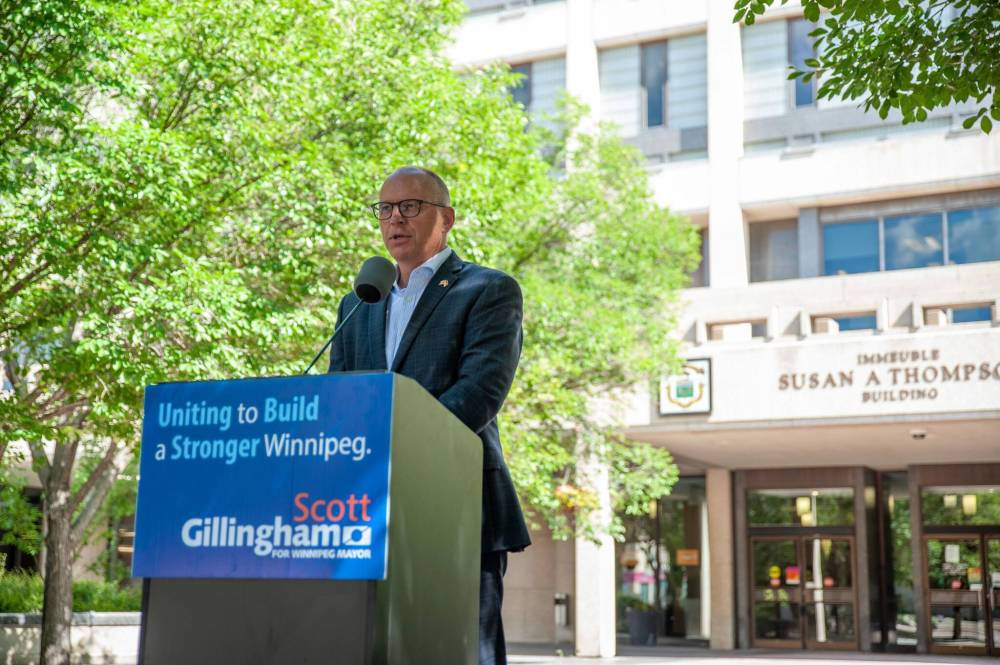
ETHAN CAIRNS / WINNIPEG FREE PRESS FILES
Mayoral candidate Scott Gillingham proposes to bring in a new dedicated “infrastructure tax” to help pay for capital projects.

Tom has been covering Manitoba politics since the early 1990s and joined the Winnipeg Free Press news team in 2019.
Our newsroom depends on a growing audience of readers to power our journalism. If you are not a paid reader, please consider becoming a subscriber.
Our newsroom depends on its audience of readers to power our journalism. Thank you for your support.




